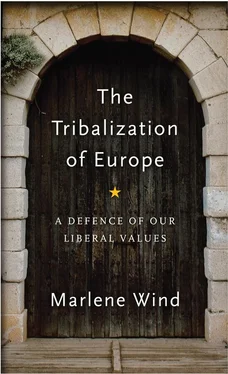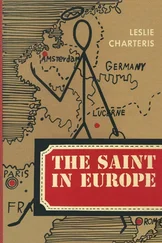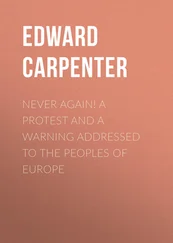Tribalization, in the form I address in this book, also has something in common with the term “ethnocentrism.” Ethnocentrism is often characterized as the attempt to reinforce one’s own identity by disparaging others. William Graham Sumner defines ethnocentrism as “a view of things in which one’s own group is the center of everything and all others … scaled and rated with reference to it.” 4However, tribalization has an extra, almost activist dimension, which is directed outward. It can be said to be a reappearance of a form of cultural fundamentalism, which sustains its momentum through active demonization and distancing from others. It is an ugly mix of generic populism combined with rage against those who do not share a particular cultural, linguistic, religious, historical, national, or even ethnic origin. I have chosen to describe it as tribalism insofar as it often draws on exclusionary language and the building of walls and borders (sometimes merely symbolically) to keep the others out. However, the purpose is not to be mistaken. First and foremost, it serves to stiffen up the “tribe” itself while underlining who does and who doesn’t belong.
Where Europe was built on the ethos of common values and inclusiveness, the continent is now split into what the British weekly The Economist describes as “the new political divide” between “wall-builders and globalists.” 5Unfortunately, the wall-builders have the upper hand at present, and the globalists are increasingly keeping mum. I will refer here to tribalization and tribalist tendencies as a kind of Balkanization, by which I mean the breaking up of the continent into several distinct (ethnic) enclaves – either literally or as a metaphorical solution to Europe’s problems as currently perceived. Leaving historical circumstances aside, the breakup of Yugoslavia and the Dayton Accords were in many ways a defeat of a European ideal: that ethnicity should never take center stage and define who we are. Although sometimes assuming more civilized forms and simulating something quite different, such as with the separatists in Catalonia or among the many extreme Brexiteers, the rhetoric that was so central to the escalation of the conflicts in the Balkans has now come back to haunt us.
The tribal way of being in the world is spreading and regaining popularity in old Europe as well as new. Not only among more or less ignorant voters who get carried away by populist leaders who cynically exploit primitive language (and social media) to create a feeling of exclusive unity. More frighteningly, perhaps, the rhetoric is spreading among established politicians and opinion makers. Tribalism has become the new political megatrend and also the go-to argument for demonizing the so-called liberal elites who still believe in the merits of a liberal international order, the dissolution of borders, and joint solutions to common challenges.
The ideal and cultivation of a common past are absolutely central to the current tribal discourse. To the extreme Brexiteers as well as the Catalan separatists and ethnic-nationalists like Hungarian leader Vikor Orbán, the reference to prior historical greatness is crucial. Research has shown that referencing an often threatened or lost common past both polarizes societies and constitutes the recipe for modern tribalism. The narrative of an identity under threat is thus the very foundation of most autocratic regimes centered on a “strong leader” with a cynical personal interest in stoking hatred and antagonism to maintain his power base. As the American scholars Steven Levitsky and Daniel Ziblatt have addressed in their book How Democracies Die , the modern death of democracies rarely materializes at a coup or a tyrannical seizure of power. Rather, the strategy often involves a polling station to at least make the exercise look like “real” democracy.
What are the flashpoints for tribalism today? Tribalism, or neo-nationalism, is apparent from one end of Europe to the other. In Catalonia, for instance, where secessionists claim to urgently need a separate Catalan state, despite having one of the highest degrees of regional autonomy in Europe. Or in Britain, where tribalism for more than three years has resonated in Brexiteers’ call to defy Europe in the name of a long-expired glorious past. Similar developments are evident in Central and Eastern Europe – and more recently Italy, where Matteo Salvini’s Lega party employs identity politics, inventing new enemies, while at the same time blaming Europe for everything that is deplorable. Today, however, tribalization is reappearing everywhere and identity politics is used offensively to create a sense of community that “others” can never become a part of.
Precisely because these identity-political projects need attention to flourish, well-orchestrated drama and divisiveness are frequently staged as media stunts, with a conflict-obsessed press happy to serve as backup chorus. On many occasions, hype and tribal aggression are a mere cover-up, a distraction from underlying corruption and power grabbing among populistic leaders. This is plain to see among the political elite and establishment in Hungary and the Cezch Republic, for instance, where aunts, uncles, sons-in-law, and old friends of Viktor Orbán and Andrej Babiš have become wealthy by greedy scams with EU funds. 6Meanwhile Orbán, to divert the attention of the blatant kleptocracy, stages noise in the public sphere about non-existing migrants who will soon invade the country and transform Hungary into a multiethnic doomsday scenario. By simultaneously undermining the free press and preventing the public prosecutor from investigating these transactions, Orbán avoids any accountability for his actions. Corruption has also been thriving among the separatists in Catalonia, but has been blotted out with as much solid media coverage of pro-independence and anti-Spanish troubles in the streets as possible. 7
Apparently, the strategy is to keep the focus of the population elsewhere and silence critical media, so that the more or less corrupted elites can make their dubious transactions in peace. However, tribalization is not reserved for autocrats who need to blur their activities. Tribalist rhetoric is rearing its head in the old, well-established democracies as well. In a desperate attempt to regain support from lost voters, the political mainstream relies on tribalistic gesture politics exemplified in everything from intensified border control to laws prohibiting burkas and taking away refugees’ jewelry, as has been legislated on in Denmark. 8It also relies upon the belief that identity politics is the only strategy left “in town” when trying to hijack voters at national elections in a global, European time. For example, a recent study found that in many Western democracies, rival political blocs agree and vote together on the large majority of issues in parliament, making identity politics and harsh rhetoric against foreigners (and the EU) the only thing left to catch voters’ attention. Of course, this does not mean that identity issues cannot be significant; for example, problems of the integration of immigrants (which is often the locus) can be very real. Of course such problems have to be addressed. The point here is merely that in many contexts, identity (posturing as real problems) has become the central focal point of modern politics – even in those parts of Europe that on the surface appear more peaceful.
The question is now: how will all this affect the future of Europe? What consequences will tribalization have for the Union’s survival? I will try to answer these questions by looking at three cases that, in my view, are emblematic of the tribal tendencies overtaking Europe in these years. Each is different and has its different features, but all are symptomatic of the present epoch of disintegration. The Catalan independence campaign, the anti-European Brexit crusade, and the animosity-ridden democratic backsliding in Central and Eastern Europe epitomize Europe in the year 2020. In the pages that follow, I will try to unravel the dynamics behind the smokescreen, and even more, our strange unwillingness to forcefully counteract it.
Читать дальше












